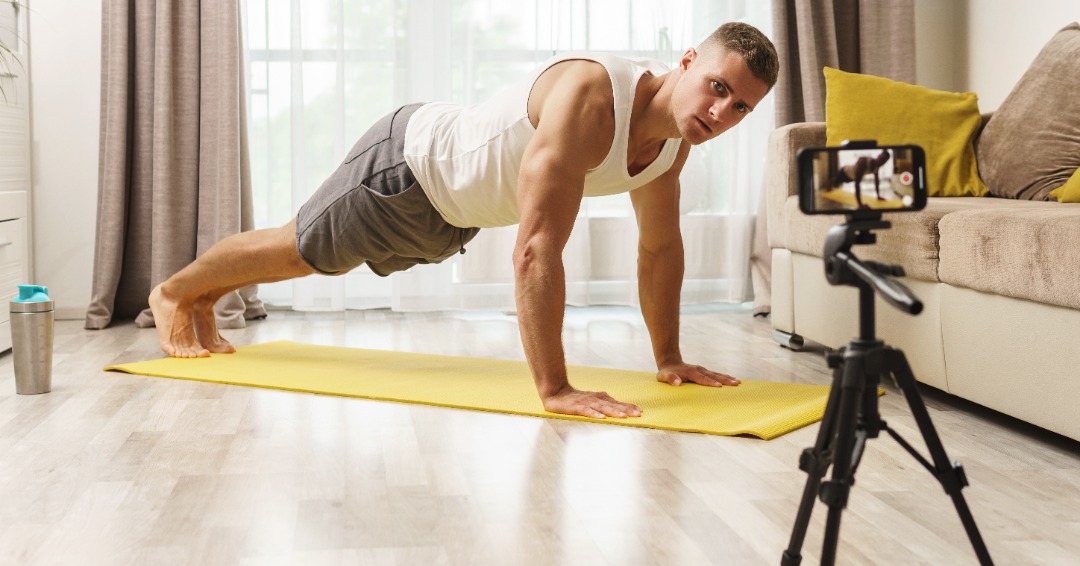The Pros and Cons of Social Media on Fitness
Social media has become an integral part of our lives, offering a platform for sharing, connecting, and seeking inspiration. In the realm of fitness, it has both positive and negative implications. While it can provide fitness inspiration, motivation, and a sense of community, it can also perpetuate unattainable body ideals, spread misinformation, and open the door to body shaming. In this article we will delve into the pros and cons of social media’s impact on fitness, shedding light on its influence on body image, health aspirations and overall well-being.

Let’s start with some of the downside:
Making Fitness Seem Intimidating
One of the downsides of social media’s influence on fitness is the proliferation of images portraying unattainable goals. Photoshopped and carefully curated pictures can create a false sense of what a healthy body looks like, leading to feelings of inadequacy and self-doubt. It’s important to remember that behind those images often lie professional models, extreme editing, and unrealistic expectations. These distorted representations of fitness can make individuals feel discouraged, fostering a belief that fitness is an unattainable and intimidating pursuit, hindering their motivation to adopt a healthy lifestyle.
Spreading Misinformation
The vast amount of fitness-related information available on social media can be overwhelming and confusing. While there are reputable sources, many individuals claim to be experts without the necessary qualifications or knowledge. This abundance of self-proclaimed “gurus” can lead to the dissemination of inaccurate or misleading information. It is crucial for individuals to critically evaluate the credibility of sources, seek advice from qualified professionals, and rely on evidence-based research when making decisions regarding their fitness journey. Relying solely on unverified information from social media can result in ineffective or potentially harmful practices.
Body Shaming
The anonymity and ease of sharing opinions on social media platforms have unfortunately given rise to body shaming. People can hide behind their screens and pass judgment on others’ appearances, making hurtful comments or perpetuating negative body image. Body shaming not only damages individuals’ self-esteem but also perpetuates harmful societal standards. Social media users should strive for empathy, kindness, and respect, recognizing that every individual’s body is unique, and health and wellness should be promoted in a positive and inclusive manner.

On the other hand, there are some real benefits to social media in helping people get in shape:
Making Fitness More Accessible
One of the significant advantages of social media in the fitness realm is its ability to make fitness more accessible to a wider audience. Platforms such as Instagram, YouTube, and TikTok provide a wealth of exercise, workout, and food ideas that can be easily accessed and replicated. Individuals can find inspiration from fitness influencers, personal trainers, and health and wellness brands, breaking down barriers to entry and providing opportunities for people to engage in fitness activities that suit their preferences, abilities, and schedules.
Providing Motivation
Seeing others in your social media feed actively sharing their workouts, healthy meals, and fitness progress can serve as a powerful source of motivation. Witnessing real people’s journeys, triumphs, and challenges can inspire individuals to stay committed to their own fitness goals. Social media creates a virtual support system that helps individuals feel connected, accountable, and driven to make healthier choices. Motivational posts, uplifting comments, and sharing personal achievements foster a sense of community and encouragement, positively influencing individuals’ attitudes towards their own health and well-being.
Offering Support
Online fitness communities and support groups on social media platforms offer a safe space for individuals to share their health journeys, seek advice, and find support. These communities can provide emotional reinforcement, guidance, and reassurance during challenging times. By connecting with like-minded individuals, individuals can build a network that fosters positivity, camaraderie, and mutual growth. Sharing experiences, triumphs, setbacks, and lessons learned allows individuals to feel supported and understood, ultimately reinforcing their commitment to a healthy lifestyle.

Social media’s impact on fitness is a double-edged sword. While it has the potential to inspire, motivate, and create a sense of community, it can also perpetuate unattainable body ideals, spread misinformation, and foster body shaming. As individuals navigate the fitness landscape on social media, it is crucial to approach it with a critical eye, seek out reputable sources, promote body positivity, and cultivate a supportive and inclusive online environment. By leveraging the benefits and mitigating the drawbacks, social media can be a powerful tool in inspiring and sustaining a healthy lifestyle. Here at Phoenix Fitness and Martial Arts, we feel our decades of experience in fitness and martial arts should be used to help others struggling to stay healthy and feel good about themselves – online and in person – and we’re ready to help you! Let’s get started!
